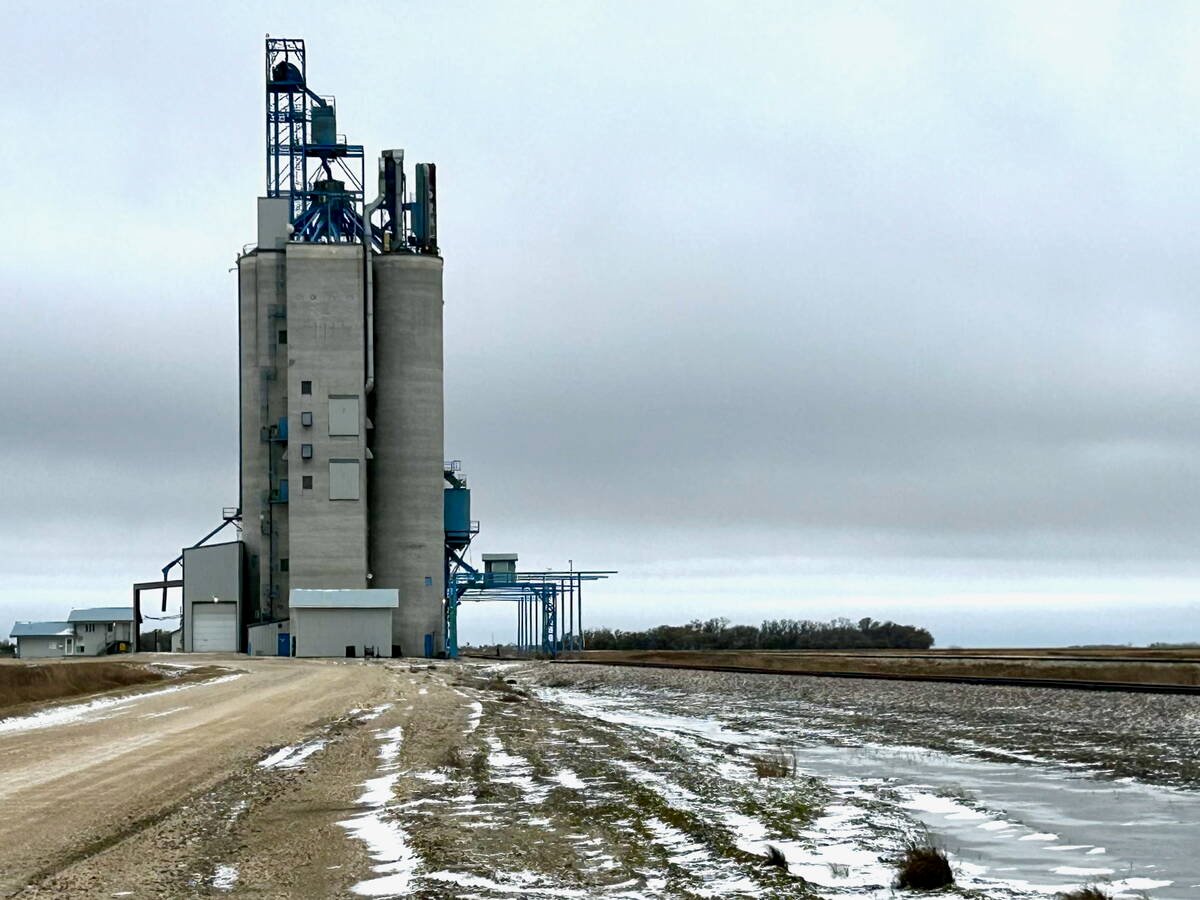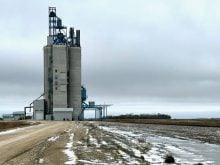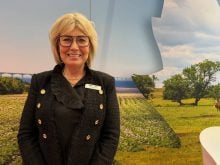DANBURY, Sask. – A visit to the Krywy farm includes a healthy dose of laughter and a sprinkling of good-natured sarcasm.
From matriarch Katie chiding her husband Paul’s love of heavy equipment to their son Don taking shots at the politics of farming, the Krywys punctuate most thoughts with a grin.
“At the end of the day, all you can do is make a joke out of it, otherwise it’s depressing,” said Don of challenges in farming, from disease and bank rates to broken equipment and early frosts.
Read Also

Manitoba grain elevator ownership expands
Carman-based Linear Grain buys Fannystelle elevator from Bunge, another three elevators sold to Morden’s BP & Sons Grain and Storage Inc.
“What comes is what comes,” he said. “You can’t stop the weather. Whatever’s left I’ll pick up.”
Don operates a 4,000 acre grain farm in east-central Saskatchewan with his younger brothers Sheldon and Lyndon.
Paul, whose Austrian grandfather established this farm, lives in Canora, Sask., but visits here regularly to help out. This day, he is in town buying parts to fix a Caterpillar.
“My husband would die if he couldn’t come out here,” said Katie, who keeps busy managing an abundant garden on the home quarter.
Everyone has a job here, said Sheldon, who like Lyndon travels to jobs in the oil patch and takes a month or two off each year to help seed and harvest the wheat and canola crops.
That arrangement works because everyone pitches in to get the job done, he said.
They talk by phone four to five times a week to discuss any purchases or spraying options before going ahead.
“Everybody goes their hardest in this business to keep it running,” Sheldon said.
They share labour and equipment and maintain one farm account at the bank. Difficulties in finding and retaining good local farm labour make family work essential, said Don.
Lyndon, who is busy raking hay near the river this warm summer day, manages the books and bills.
Sheldon would like to farm full time one day but said until then a healthy salary in the oil industry helps subsidize the farm.
In order to boost income further, the Krywys planted alfalfa hay on poorer fields not suited to other crops. Currently seeking markets for the round bales in Manitoba, they plan to switch to square bales in the future to increase their chances for sales into the United States.
They are also toying with the idea of adding cattle one day.
Don, who has worked off farm in the past, resides on the farm and manages the day-to-day operations while staying close to his girlfriend and their young daughter, who live in Norquay, Sask.
A wood heater in the yard, which doubles as a grain dryer in the fall, takes advantage of local timber stocks to heat the two homes occupied by Don and Lyndon. Sheldon has a house at Stenen, Sask.
While Don’s formal education ended in Grade 9, he keeps himself abreast of industry trends and information through agricultural consultants and a local marketing club.
“It’s always good to hear what someone else’s point of view is,” said Don.
“We look for new ideas.”
This winter, he will take a course in environmental farm planning and hopes to design a fuel station in the yard to protect the farm from any leaks.
The Krywys intensively manage their fields to boost yields and maximize returns, using regular doses of inputs based on soil samplings.
“When growing a crop, why not get all you can out of it,” said Don, who estimates this year the per acre yield is at least 50 bushels of wheat and 70 bu. of canola.
The family hauls its own grain and operates a high clearance sprayer to capitalize on the narrow window of opportunity for spraying, explained Don.
He and Sheldon are equally optimistic about the opportunities in farming.
“There is money to be made. It’s just not our time yet,” Don said with a grin.
For now, he is content with the variety of the work, the ever-changing seasons and the potential to grow a good crop every year.
Sheldon said it’s important to look ahead in farming.
“You take ‘er day by day; there’s no sense worrying about the past but look to the future.”
Katie is happy to have retired from the farm where she raised seven children and is enjoying her new life in town. Paul worked hard most of his life, rarely taking time away for holidays, she said.
“He was proud of it and the boys are doing pretty good too,” she said, smiling.














